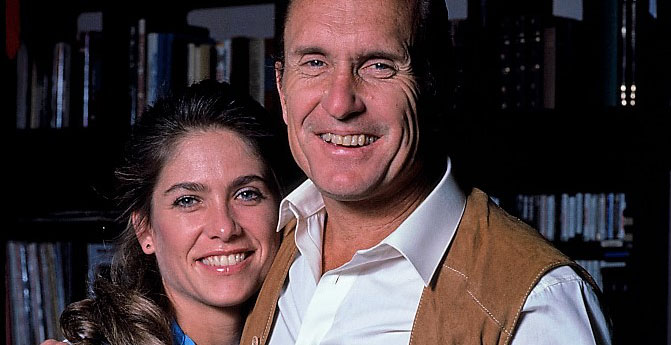Robert Duvall is a man whose every performance appears to be woven into the history of Hollywood. Whether he’s in a war-torn odyssey, a mafia epic, or a poignant character study, Duvall is the type of performer who makes you feel as though you’ve known him for decades. His performances are as varied as they are iconic, making him the ultimate Hollywood legend with a career spanning decades and genres.
The Godfather (1972)
In Duvall’s portrayal of Tom Hagen in The Godfather, the character was the glue that held the Corleone family together. The consigliere was portrayed by Duvall in a controlled tone and with subtle movements that gave the impression that every wise decision was supported by a lifetime of stoic strength. His calm, collected performance influenced the development of the model for supporting roles in crime dramas.
The Godfather Part II (1974)
Duvall’s reappearance as Tom Hagen in The Godfather Part II elevates his already outstanding performance in the first film to a whole new level. The stakes are higher and the emotional undertones are more profound in this sequel. Duvall skillfully negotiates personal sacrifice and family politics, highlighting the fact that sometimes the most significant responsibilities are performed quietly rather than loudly. A tribute to his enduring brilliance, his nuanced performance gives layers of complexity to a character that symbolizes both vulnerability and strength.
Apocalypse Now (1979)
With Apocalypse Now, change gears and enter the bizarre pandemonium of battle. Here, Duvall takes on the role of the iconic Lt. Col. Bill Kilgore, a figure who is as bold as he is legendary. Duvall gives a performance that is both outlandish and captivating, with lines that reverberate throughout the history of cinema. His portrayal of Kilgore is an exhilarating trip, brimming with frantic energy that aptly conveys the madness of battle. This part serves as a reminder of why Duvall’s on-screen persona is so iconic.
The Great Santini (1979)
Duvall portrays a tough, no-nonsense military soldier in The Great Santini who is just as intimidating at home as he is on the battlefield. With every look, he exudes dread and reverence as Bull Meechum. However, beneath that rugged appearance is a guy battling his own demons, an internal conflict that gives an otherwise strong persona a more genuine, human touch. Even the toughest façade can hide a troubled soul, as seen by Duvall’s masterful portrayal of the nuances of vulnerability and authority in this movie.
Tender Mercies (1983)
Tender Mercies is the movie that best captures Duvall’s vulnerable side. He portrays a broken country musician looking for atonement and a second chance at life. As delicate as the title implies, Duvall’s performance is full of subtle expressions and a slow, steady drawl that conveys a lot about broken dreams and the hope of new beginnings. This role is an emotional journey that continues long after the credits have rolled.
The Two Jakes (1990)
Duvall plays Tom Hagen again in The Two Jakes, returning to the world of The Godfather. Every nod and pause in Duvall’s portrayal speaks volumes about duty, commitment, and the bittersweet passage of time. It’s a masterwork of restraint. His return in the film serves as a reminder that sometimes the most powerful performances depend more on the quiet strength that keeps everything together than on dramatic outbursts or flashy lines.
Lonesome Dove (1989)
Duvall plays the role of Augustus McCrae in this critically acclaimed miniseries, showcasing his flexibility and strong affinity for Americana. His character’s dry humor and unsaid grief serve as a reminder that life on the frontier is about more than just surviving; it’s also about the relentless passing of time and the eternal ties of friendship. This role is a delightful escape that demonstrates Duvall’s ability to command the big screen.
A Family Thing (1996)
Duvall plays a character in A Family Thing that is both sophisticated and emotionally charged. He plays a patriarch whose presence serves as the anchor of a tale about ties to one’s family, selflessness, and the painful passing of one’s legacy. Warm, tough, and full of quiet determination, Duvall’s portrayal serves as a reminder that family isn’t always about blood but also about the bonds that mold us over time. This film stands out because of his ability to portray both tenderness and strength, providing a glimpse into the man behind the myth-a real family guy who is aware of the importance of legacy.
The Apostle (1997)
Duvall offered us The Apostle, demonstrating his willingness to play several roles as an actor, writer, and director. Here, he transforms into a preacher with a troubled history who is looking for salvation in the most unlikely places. Duvall’s performance radiates sensitivity and conviction. His portrayal is highly personal and filled with unexpected wit and moments of pure honesty. It is a part that questions accepted ideas of heroism and serves as a reminder that there are instances when the road to salvation is paved with flaws and daunting experiences.
The Man Who Captured Eichmann (1996)
Duvall portrays a character split between duty and the weight of history with a steely intensity in this compelling narrative of one of the most infamous fugitives in history. He portrays a man who knows that often his greatest battles are fought within himself, and his portrayal is both powerful and introspective. Duvall once again demonstrates why he is regarded as one of Hollywood’s best storytellers with his distinctive fusion of detachment and passion.
Duvall’s performances are a masterclass in what it means to be a true artist-unapologetically real, endlessly versatile, and forever unforgettable. So, the next time you find yourself pondering what makes a performance truly iconic, just take a moment to remember Robert Duvall. For more top picks on Hollywood celebrities, check out Stream TV and get premium video countdowns of movies, TV shows and more!


